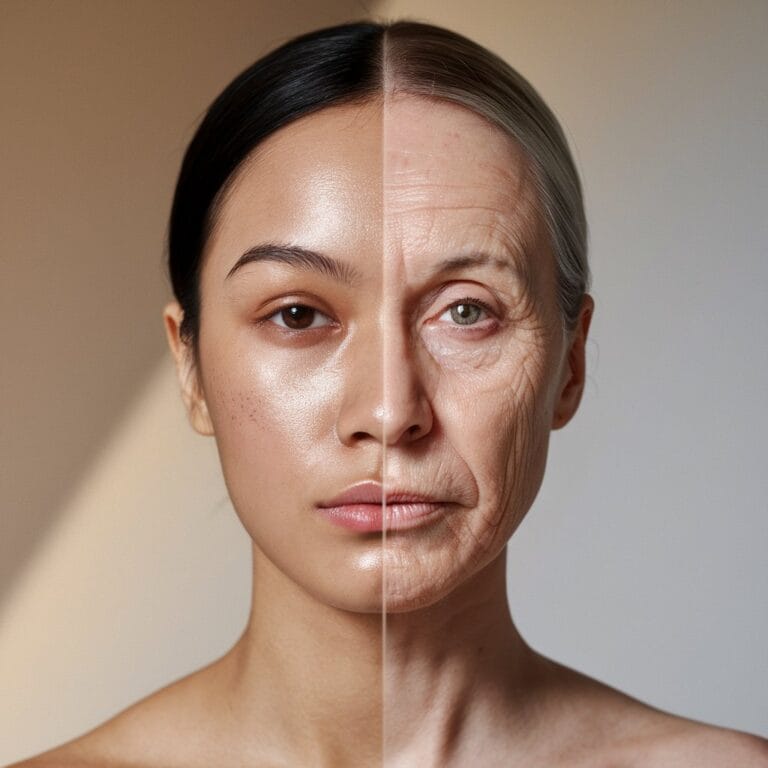FREE SHIPPING OVER $50
Is Teeth Whitening Ruining Your Smile? The Truth You Need to Know
There’s no denying it—white teeth are in. From Instagram filters to celebrity red carpets, the pressure for a brighter smile is real. And with so many over-the-counter products and professional treatments available, whitening your teeth has never been easier—or more tempting.
But here’s the catch: just because something is popular doesn’t mean it’s safe for everyone.
So, is teeth whitening actually ruining your smile? Or is it just a harmless cosmetic boost? Let’s break down what the science—and dentists—really say about it.
What Is Teeth Whitening, Exactly?

Teeth whitening involves removing stains and discoloration from your teeth to make them appear whiter and brighter. Most whitening products rely on active ingredients like hydrogen peroxide or carbamide peroxide, which break down stains on the enamel surface.
You’ll find whitening in a few forms:
- In-office whitening treatments
- At-home professional kits
- Over-the-counter strips, gels, or toothpastes
- DIY whitening (like baking soda or charcoal)
Sounds harmless, right? But what happens beneath the surface is what you need to watch out for.
Enamel Erosion: Whitening Can Weaken Tooth Structure
Your enamel is the protective outer layer of your teeth, and it doesn’t grow back. Whitening agents—especially when used too frequently—can gradually wear away this enamel.
Research suggests that peroxide-based whiteners can lead to enamel demineralization over time. Once it thins out, you’re more likely to experience sensitivity and even decay.”
What to watch for:
- Teeth that look translucent at the edges
- Chalky white patches (early enamel erosion)
- Increased susceptibility to cavities
Overusing whitening products, especially ones with high peroxide levels, is one of the biggest risks to your smile’s long-term health.
Tooth Sensitivity: A Common Side Effect That May Signal Damage
One of the most reported side effects of whitening is sensitivity—either during or after treatment.
This happens when the peroxide seeps into tiny pores in your enamel and irritates the nerve endings inside your teeth. In some people, this discomfort is temporary. But for others, it can become a long-term issue.
Signs of whitening-related sensitivity:
- Pain or zinging sensations when eating hot or cold foods
- Lingering discomfort after brushing
- Sharp pain with air exposure
If you’re whitening frequently or using strong products, you’re increasing your risk for dentin hypersensitivity—a problem that can be hard to reverse.
Gum Irritation: Whitening Gels Can Burn Soft Tissue
Whitening agents aren’t just tough on enamel—they’re tough on gums too.
If gels or strips come in contact with your gums, they can cause chemical burns, inflammation, or peeling. This is especially common when people don’t follow product instructions or overuse whitening trays.
Prevention tip:
Always use custom trays or well-fitted strips, and avoid applying too much gel. If it burns, rinse it off immediately.
Overuse Is Real: Whitening Addiction Can Lead to “Bleachorexia”
Yes, that’s a real term. Some people become obsessed with achieving a brighter and brighter smile—even when their teeth are already white.
This excessive whitening can damage enamel, increase sensitivity, and give teeth an unnatural bluish or translucent hue. It’s not just bad for your teeth—it can also affect your mental health.
If you find yourself whitening every week or feeling anxious about tooth shade daily, it may be time to talk to a dental professional.
Whitening Doesn’t Work the Same for Everyone
Whitening can be super effective—but only if your discoloration is the right type.
- Extrinsic stains (from coffee, red wine, smoking) respond well to whitening
- Intrinsic stains (from trauma, medications, or aging) may not improve much
- Dental restorations like veneers, crowns, or fillings won’t whiten at all
Using strong whitening products on teeth that won’t respond can lead to disappointment—or worse, harm.
Safe Whitening Starts with Your Dentist
Before you reach for that extra-strength whitening strip, take this advice: always consult a dentist first.
Dentists can:
- Assess if your enamel is strong enough
- Identify the cause of your discoloration
- Recommend the safest method for your needs
- Provide custom trays to protect your gums
Professional whitening may cost more upfront, but it’s safer, more effective, and often lasts longer than over-the-counter alternatives.
Natural Ways to Brighten Without the Risk
If you want to whiten gently (and protect your smile), there are natural, enamel-safe habits that can help reduce stains and brighten your teeth gradually.
Try this instead:
- Oil pulling with coconut oil (reduces plaque and surface stains)
- Brushing with baking soda occasionally (non-abrasive if used in moderation)
- Eating crunchy fruits and veggies like apples, celery, and carrots
- Drinking through a straw to reduce stain exposure from coffee or tea
- Rinsing your mouth with water after meals or staining drinks
These won’t give you overnight results, but they’ll help maintain a brighter smile long term—without the damage.
How Often Can You Whiten Safely?
Most dentists recommend whitening no more than once every 6 months for professional treatments and once every few weeks for over-the-counter products—if your enamel is healthy.
If you’re whitening more frequently, especially with high-concentration products, you’re likely causing damage over time.
The rule of thumb?
If your teeth hurt, feel weak, or your gums are irritated, stop whitening and seek professional advice.
Is Teeth Whitening Ruining Your Smile?
Teeth whitening, when done right, is generally safe and effective. But overdoing it—or using products incorrectly—can absolutely harm your teeth and gums.
Here’s what to remember:
- Whitening should never hurt.
- Over-the-counter doesn’t mean risk-free.
- A whiter smile isn’t worth long-term enamel damage.
If you’re considering whitening, talk to your dentist first. Protect your enamel, follow instructions closely, and focus on the overall health of your smile—not just the shade.
Because trust us: healthy teeth will always look better than brittle, sensitive ones.
Related Articles
- Dentists Reveal: Is an Electric Toothbrush Really Better—Or Just Hype?
- I Asked 5 Cosmetic Dentists Which Toothpastes Work Best for Whitening—Did Yours Make the List?
- How Your Oral Health Changes as You Age and What to Do to Stay Healthy
- 8 Proven Ways to Straighten Your Teeth Without Braces (Dentists Swear by #3)
- Dentists Say These 10 Habits Can Save Your Gums—Are You Doing Them?







